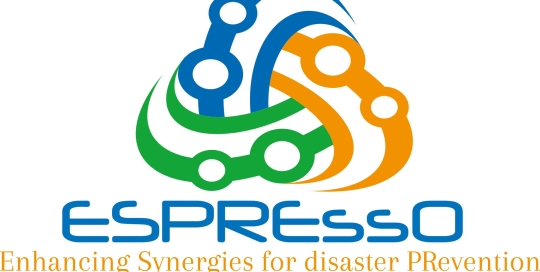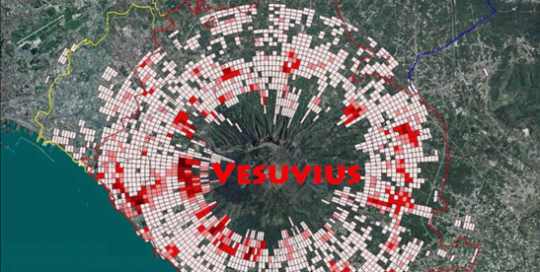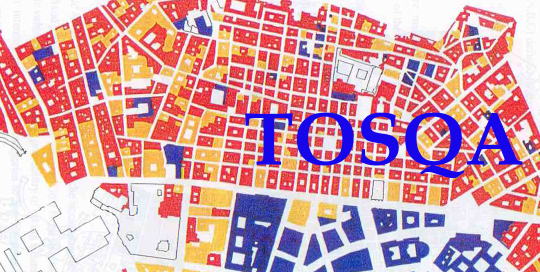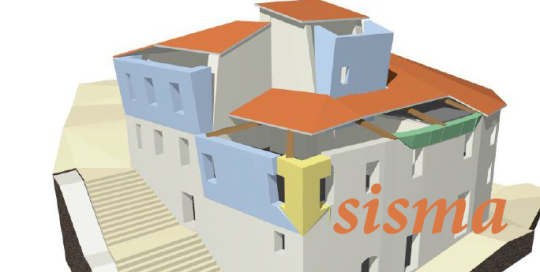Integrated Climate Adaptation Service Tools for Improving Resilience Measure Efficiency H2020-SC5-2016-TwoStage Urban areas and traffic infrastructure linking such areas are highly vulnerable to climate change. Smart use of existing climate intelligence can increase urban resilience and generate added value for businesses and society at large. Based on the results of FP7 climate change, future internet [...]
ESPRESSO_EU_PROJECT_H2020_2016_2018
Climate Change, Decision Support System, EU Projects
ESPRESSO - Enhancing Synergies for disaster PRevention in the EurOpean Union - DRS-10-2015 Giulio Zuccaro Project Coordinator for AMRA S.c.a r.l. The ESPREssO project addresses the topic DRS-10-2015: Disaster Resilience and Climate Changetopic 2: Natural Hazards: Towards risk reduction science and innovation plans at national and European level.ESPREssO aims at contributing to a new strategic [...]
REACHING OUT_EU_H2020_PROJECT_2016-2019
Decision Support System, EU Projects, Hydrogeological Risk, Seismic Risk, Volcanic Risk
demonstRation of EU effective lArge sCale tHreat and crIsis maNaGement OUTside the EU H2020-DRS-2015 Effective EU support to a large external crisis requires new approaches. In response to this challenge and to identified user and market needs from previous projects, Reaching Out proposes an innovative multi-disciplinary approach that will optimize the efforts, address a wide [...]
SNOWBALL_EU_PROJECT_FP7_2014-2017
Decision Support System, EU Projects, Hydrogeological Risk, Seismic Risk, Volcanic Risk
Lower the impact of aggravating factors in crisis situations thanks to adaptative foresight and decision-support tools - FP7-SEC-2013-1 SnowBall is a €5M STREP R&D proposal of 36 months. Its overall objective is to increase preparedness and response capacities of decision-makers, emergency planners and first responders in respect to amplifying hazards in large disasters. SnowBall consists [...]
CRISMA_EU_PROJECT_FP7_2012- 2015
Decision Support System, EU Projects, Hydrogeological Risk, Seismic Risk, Volcanic Risk
Modelling crisis management for improved action and preparedness - FP7-SEC-2011-1 (as a research unit of AMRA S.c.a r.l.) The CRISMA project shall develop a simulation-based decision support system (Integrated Crisis Management System - ICMS), for modelling crisis management, improved action and preparedness. The ICMS shall facilitate simulation and modelling of realistic crisis scenarios, possible response [...]
SAFELAND_EU_PROJECT_FP7_2009-2012
EU Projects, Hydrogeological Risk
Living with landslide risk in Europe: Assessment, effects of global change, and risk management strategies - FP7-ENV-2008-1 (as a research unit of AMRA S.c.a r.l.) SafeLand will develop generic quantitative risk assessment and management tools and strategies for landslides at local, regional, European and societal scales and establish the baseline for the risk associated with [...]
EXPLORIS_EU_PROJECT_FP6_2002-2005
EU Projects, Volcanic Risk
Explosive eruption risk in densely populated EU volcanic regions and evaluation of the likely effectiveness of possible mitigation measures, EU FP6. EXPLORIS Project website
VESUVIUS_EU_PROJECT_FP5_1998-2000
EU Projects, Volcanic Risk
Human Casualties and Structural Vulnerability consequent to a possible eruption of Mount Vesuvius, EU FP5.
TOSQA_EU_PROJECT_1993-1995
EU Projects, Seismic Risk
TOwn Safety Quake Assessment. Earthquake Protection for Historic Town Centres. Environment and Climate European project.
SISMA_EU_PROJECT_1987
EU Projects, Seismic Risk
Seismic Impact Simulation Model for Regional Planning in in Campania - Collaborative Project of the LUPT Centre with The Martin Centre (University of Cambridge, UK).











